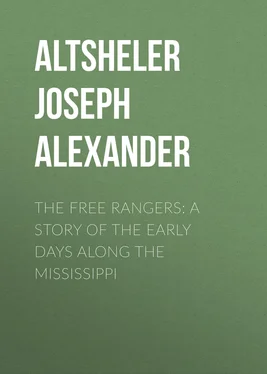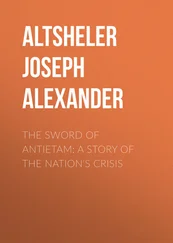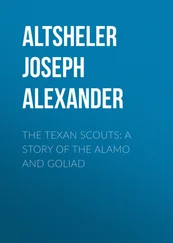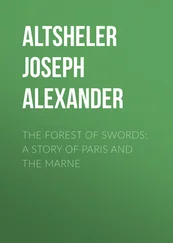Joseph Altsheler - The Free Rangers - A Story of the Early Days Along the Mississippi
Здесь есть возможность читать онлайн «Joseph Altsheler - The Free Rangers - A Story of the Early Days Along the Mississippi» — ознакомительный отрывок электронной книги совершенно бесплатно, а после прочтения отрывка купить полную версию. В некоторых случаях можно слушать аудио, скачать через торрент в формате fb2 и присутствует краткое содержание. Жанр: foreign_children, foreign_antique, foreign_prose, prose_military, на английском языке. Описание произведения, (предисловие) а так же отзывы посетителей доступны на портале библиотеки ЛибКат.
- Название:The Free Rangers: A Story of the Early Days Along the Mississippi
- Автор:
- Жанр:
- Год:неизвестен
- ISBN:нет данных
- Рейтинг книги:3 / 5. Голосов: 1
-
Избранное:Добавить в избранное
- Отзывы:
-
Ваша оценка:
- 60
- 1
- 2
- 3
- 4
- 5
The Free Rangers: A Story of the Early Days Along the Mississippi: краткое содержание, описание и аннотация
Предлагаем к чтению аннотацию, описание, краткое содержание или предисловие (зависит от того, что написал сам автор книги «The Free Rangers: A Story of the Early Days Along the Mississippi»). Если вы не нашли необходимую информацию о книге — напишите в комментариях, мы постараемся отыскать её.
The Free Rangers: A Story of the Early Days Along the Mississippi — читать онлайн ознакомительный отрывок
Ниже представлен текст книги, разбитый по страницам. Система сохранения места последней прочитанной страницы, позволяет с удобством читать онлайн бесплатно книгу «The Free Rangers: A Story of the Early Days Along the Mississippi», без необходимости каждый раз заново искать на чём Вы остановились. Поставьте закладку, и сможете в любой момент перейти на страницу, на которой закончили чтение.
Интервал:
Закладка:
Yet Alvarez would not move, so Shif'less Sol reported. He seemed to be still waiting for something, and on the following night Henry, Paul, and Shif'less Sol went forth to watch the Spanish camp again.
"I've a feelin' in me," said the shiftless one, "that somethin' is goin' to happen to-night. I often have these feelin's, omens some people call 'em, min'-readin' other people say. I notice that I gena'lly have 'em jest about when all the circumstances show that things are comm' to a head, jest ez ef Paul here wuz to feel along about 6 or 7 o'clock in the afternoon that sundown couldn't be fur away. You can't beat it. Now when I've gone fifteen or eighteen hours without food I have a feelin'—an' it's a strong one, too—that I'm goin' to be hungry, an' I'm sca'cely ever mistook, jest ez I've got a feelin' when the skies are filled with big black clouds that it's liable to rain purty soon. I tell you, Paul, it's a great thing to have this here power you call second sight."
The three walked steadily on in Indian file through the forest, their trained feet making no sound among the trunks and brushes. The night was dark, just suited to their purpose, and clouds floated up to dim the skies. No stars came out, and the moon was hidden. By and bye the wind rose, and dashes of rain were whipped into their faces.
But the three did not mind. Such things as these had become trifles to them long since. Henry led with sure step, Shif'less Sol came next, and Paul brought up the rear. Henry stopped after a while, and sank down among the bushes. The other two did likewise, and, after a little pause in which they heard nothing, they began to creep forward, taking the utmost care to make not even the slightest sound. They saw presently through the trees and bushes a faint red shade that grew fast to a glow and then to a glare.
Henry stopped, sank lower, and beckoned to his comrades. They crept to his side and looked over a steep little cliff directly upon the Spanish camp. Most of the soldiers were grouped about a large camp fire, and Francisco Alvarez was among them in a place of honor.
Hidden in the deep shrubbery the three occupied points of vantage, and, while secure from observation themselves, they could easily see all that passed in the glade. Several tents had been set, although the flaps were wide open and within one of these sat Francisco Alvarez in all the gorgeous attire of a Spanish officer, most fastidious in his taste. The gold on his uniform glittered, the lace on his cuffs was snowy and fresh, and the polished hilt of his small sword gleamed in the firelight. He had the air of one who expected distinguished guests.
"Now I wonder what has become of Braxton Wyatt," whispered Paul. Nowhere could he see a sign of the renegade.
"He is coming," whispered Henry, who had what Shif'less Sol would have called an intuition.
Two of the Spaniards heaped more wood upon the fire. The logs crackled and blazed merrily, casting long tongues of flame across the glade, and sending a grateful heat into the veins of the warm-blooded Southerners. The flurries of rain ceased, and the skies brightened a little. A star or two peeped out.
"Ah!" said Henry in the lowest of whispers, "here they come!"
The bushes at the far side of the glade parted and three figures came into the open. They took but two or three steps forward and then stopped full in the blaze of the firelight, where every feature showed like carving in the red glow.
The hidden watchers recognized at once the three who had come. They were Braxton Wyatt, Yellow Panther the Miami chief, and Red Eagle the Shawnee chief. Paul repressed a little cry of amazement that he should see the two Indian leaders so far from the territory of their tribes. They must intend much to come such a journey.
Braxton Wyatt stepped back a little, as if having performed his function of guide he would now remain awhile in the background, but the two great chiefs stood motionless, side by side, magnificent specimens of savage life, bronze of skin, tall of figure, powerful of chest, thin, eagle-like faces, and defiant scalp-locks waving above. The imaginative Paul, seeing how well they fitted into the wilderness scene, was forced to admire. The firelight flickered and blazed over them, but they were immovable in all their savage dignity. Henry put his hand upon Paul's shoulder, and pressed gently. It was an intimation to look with all his eyes and listen with all attention. But Paul did not need the hint.
Francisco Alvarez also was impressed. He loved the towns and luxury, but he had acuteness and perception, and he knew that these were strong men of their kind, men with whom he must deal according to the courtesy of the woods. He rose from his tent, bowed to them, and walked forward. He himself was a splendid figure in his gorgeous uniform, and his carriage was marked by dignity.
"Now see them salute," whispered the shiftless one in Paul's ear.
Braxton Wyatt stepped forward again, produced a pipe with a beautifully carved horn handle, and filled it carefully with tobacco, which he lighted with a coal from the fire. Then he handed it to Red Eagle, who was the older of the chiefs, and Red Eagle gravely took a half dozen whiffs. Then he passed it to Yellow Panther, who did likewise, and the chief in his turn handed it to the Spanish commander. Alvarez smoked gravely for a half minute, and then Braxton Wyatt took the pipe.
"Now for the big confab," whispered Sol.
Fine buffalo robes were spread before the fire, and the three leaders and Braxton Wyatt sat upon them. All others kept at a respectful distance. The four began to talk and, although only an occasional word reached the watching three, they knew too well their subject of converse. It was the great conspiracy to draw the Spanish from Louisiana into an attack upon the infant settlements, upon the ground that they were or would be interlopers. It was cannon that the assailants needed to smash the block houses, and cannon in abundance could be brought on the great rivers from New Orleans.
The watchers presently saw Braxton Wyatt take a small parcel from the inside of his deerskin hunting shirt. He unfolded the parcel and the watchers could see that it consisted of large pieces of the finest, tanned deerskin.
"Maps," said Paul intuitively. "That scoundrel, Braxton Wyatt, has made them for the aid of the Spanish, and to disclose all our weak points!"
The fire blazed higher and they could see that on the white deerskin were drawn lines in colored pigment, and the rest they guessed. It was true enough. Braxton Wyatt, no mean draughtsman, had drawn, with the most elaborate care and attention to detail, maps on a large scale of every one of the infant settlements. There was nothing about Wareville in particular that he did not show, and he also designated all the rivers, hills, and valleys as far as they were known. With such aid a Spanish force, backed by cannon and the warriors, must triumph over every post in Kentucky.
"I never thought of this," whispered Paul. Henry merely pressed his shoulder again to indicate that they were ready to deal with it, if man could.
The three watchers remained there more than an hour, and Alvarez, Wyatt, and the chiefs still discussed the maps with every appearance of agreement, bending their heads over them, and now and then disclosing eager faces, as they lifted them in the firelight.
"Alvarez wants to help them," whispered Paul. "He hates us, and, if he can, he will commit the Governor of Louisiana to the Indian alliance."
"Beyond a doubt," replied Henry, "and so it's not worth while for us to wait here any longer."
They slid away in the dark and returned to their own camp. There Long Jim and Tom Ross were placidly awaiting them, and they were not at all surprised at the news. Then the five held another of their conferences.
Читать дальшеИнтервал:
Закладка:
Похожие книги на «The Free Rangers: A Story of the Early Days Along the Mississippi»
Представляем Вашему вниманию похожие книги на «The Free Rangers: A Story of the Early Days Along the Mississippi» списком для выбора. Мы отобрали схожую по названию и смыслу литературу в надежде предоставить читателям больше вариантов отыскать новые, интересные, ещё непрочитанные произведения.
Обсуждение, отзывы о книге «The Free Rangers: A Story of the Early Days Along the Mississippi» и просто собственные мнения читателей. Оставьте ваши комментарии, напишите, что Вы думаете о произведении, его смысле или главных героях. Укажите что конкретно понравилось, а что нет, и почему Вы так считаете.












